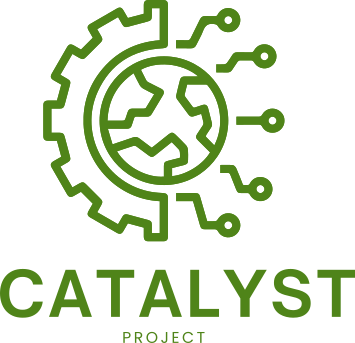About#
The Catalyst Project is a community-engaged collaboration working to build sustainable open source cloud infrastructure for biomedical communities in Africa and Latin America. Thanks to funding from the Chan Zuckerberg Initiative, the seven organisations that make up the Catalyst Project’s Core Team are partnering with local communities to provide cloud infrastructure, as well as coordinate access to relevant training and mentorship.
If you are interested in partnering with the Catalyst Project, please get in touch with us!
Find out more about the Catalyst Project Core Team
What is the Catalyst Project cloud infrastructure?#
Over the last 20 years, the field of biomedical science has evolved and expanded. Research laboratories not only rely on wet lab infrastructure (think pipettes and incubators), but also computers that can analyse ever-growing datasets and run increasingly sophisticated algorithms.
In traditionally underserved areas, such as Africa and Latin America, access to high-throughput computing is impacted in a number of ways - from a lack of physical infrastructure to a dearth of training in how to use and maintain new systems.
Open-source cloud computing services make high-throughput computing power available without the need for onsite computing infrastructure (meaning experiments can run uninterrupted through blackouts, for example). And with training provided by the Catalyst Project’s Core Team members, local engineers can maintain that infrastructure themselves, without relying on proprietary software or expensive service contracts.
2i2c, one of the Catalyst Project Core Team organisations, has pioneered the open science cloud services approach, supporting computing hubs for research and training organisations in various contexts.
Who is it for?#
The Catalyst Project is aimed initially at institutions and nonprofits in Africa and Latin America who use high-throughput computing in their biomedical research or data science training efforts. Partnering with the Catalyst Project requires either an existing alignment with open science principles (including community leadership, vendor-agnosticity, and open-source infrastructure), or a goal of adopting and working with these principles.
How does it further open science?#
Cloud computing not only facilitates scientific research (speeding up computations by up to 1000 times and making big data approaches possible) - it also creates an online space in which collaborators can connect and share workflows and datasets.
Community Partners in the Catalyst Project also participate in open science training as a member of the next OLS Open Seed cohort, and have the opportunity to deepen their connections with the global open science community.
Get involved! Community Partnership#
If you are involved in biomedical research, or training initiatives related to computational biology, in Africa or Latin America, consider becoming a Catalyst Project Community Partner!
Catalyst Project Community Partners join our network for an initial period of one year, during which time they receive access to cloud infrastructure services (a federation of JupyterHubs that are designed, configured, and managed by 2i2c) as well as training in how to use “the hub,” the principles of open science, and how to train other members of their team.
Community Partners are also invited to collaborate with the Catalyst Project Core Team to refine processes and resources so that they meet the needs of their specific context - this includes translating and contextualising resources for communities in Latin America in collaboration with MetaDocencia.
Contact the Catalyst Project#
We would love to hear from you! If you have questions, or would like to partner with us, please visit our contact page for more information.
